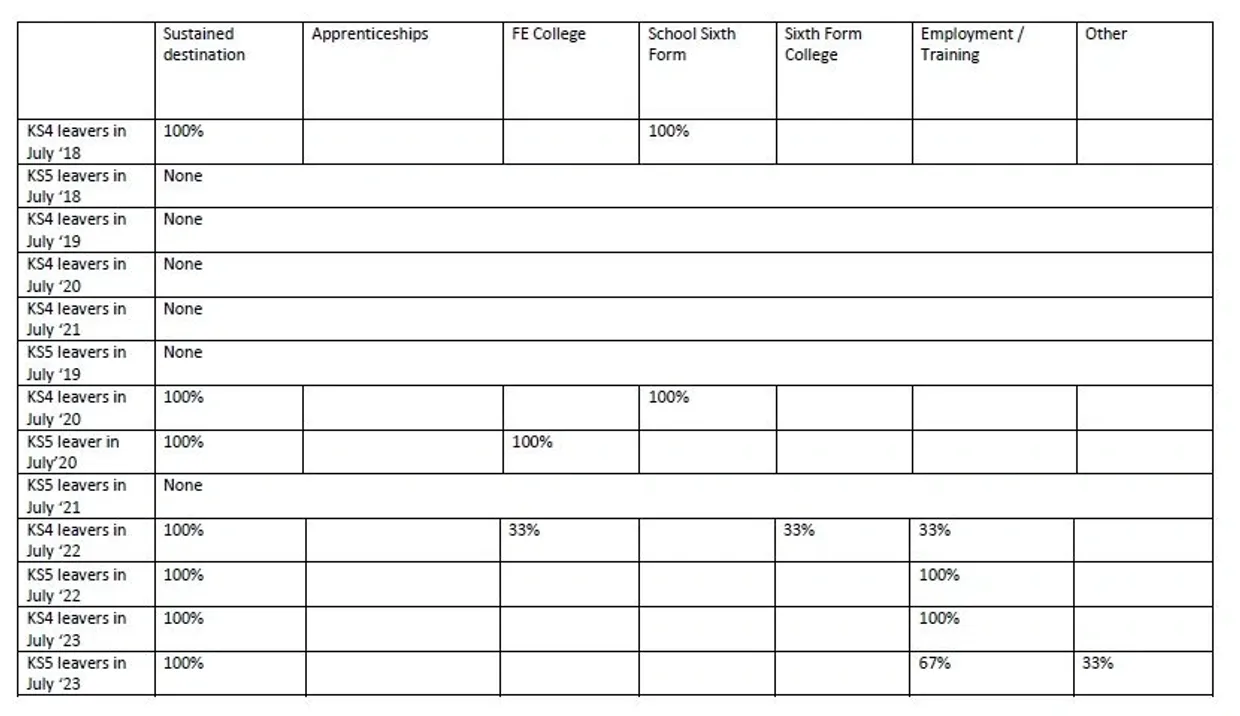Careers Education
There has never been a time when careers guidance has been as important for young people. The landscape of education, training and employment opportunities that students need to navigate is more complex and more challenging than was faced by previous generations. People who have an Autistic Spectrum Condition, have many qualities which can make them excellent employees. For this reason, it is important to provide employment support for autistic individuals.
City of Rochester school follow the Gatsby career benchmarks. These are predominantly used as a framework for developing career guidance in schools that is world class.
We recognise that effective careers guidance is the driving force to securing futures. We want young people to fully understand the world of possibilities out there and make the most of their talents and create lasting careers.
We use the Compass tool to help us to audit our progress in meeting the Gatsby benchmarks. This is reviewed regularly.There are eight recognised Gatsby benchmarks that our careers provision aims to meet.
A stable careers programme – Every school and college should have an embedded programme of career education and guidance that is known and understood by pupils, parents, teachers and employers.
Learning from career and labour market information – Every pupil, and their parents, should have access to good-quality information about future study options and labour market opportunities. They will need the support of an informed adviser to make best use of available information.
Addressing the needs of each pupil – Pupils have different career guidance needs at different stages. Opportunities for advice and support need to be tailored to the needs of each pupil. A school’s careers programme should embed equality and diversity considerations throughout.
Linking curriculum learning to careers – All teachers should link curriculum learning with careers. For example, STEM subject teachers should highlight the relevance of STEM subjects for a wide range of future career paths.
Encounters with employers and employees – Every pupil should have multiple opportunities to learn from employers about work, employment and the skills that are valued in the workplace. This can be through a range of enrichment activities including visiting speakers, mentoring and enterprise schemes.
Experiences of workplaces – Every pupil should have first-hand experiences of the workplace through work visits, work shadowing and / or work experience to help their exploration of career opportunities and expand their networks.
Encounters with further and higher education – All pupils should understand the full range of learning opportunities that are available to them. This includes both academic and vocational routes and learning in schools, colleges, universities and in the workplace.
Personal guidance – Every pupil should have opportunities for guidance interviews with a career’s adviser, who could be internal (a member of school staff) or external, provided they are trained to an appropriate level. These should be available whenever significant study or career choices are being made. They should be expected for all pupils but should be timed to meet their individual needs.

Destination Data 2018 – 2022
Our ambitions for children with autism are exactly the same as for all other children – to do well in school and college, find sustained employment and live happy and fulfilled lives.
Schools and colleges already do a great job at supporting children with autism but we know there is more to do to make sure these young people are given the opportunity to unlock their full potential and succeed.
This pivotal review will help to find out how we can further our understanding of all forms of autism, improve how children and adults are supported and transform the life outcomes for people with autism.
Our Careers Plan sets out how the school intends to provide a fit-for-purpose careers programme with available resources which will provide our students with the knowledge, inspiration and ability to take ownership of their own career action plans enabling them to succeed in their chosen career paths.
Careers Documents
Useful Websites for Careers Advice
